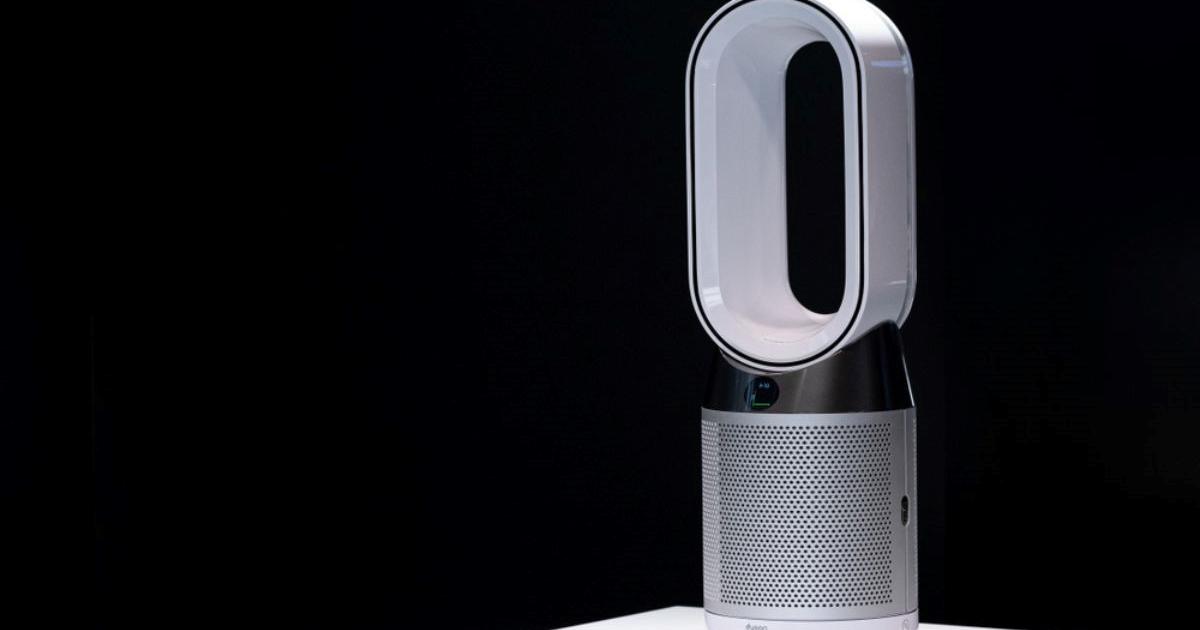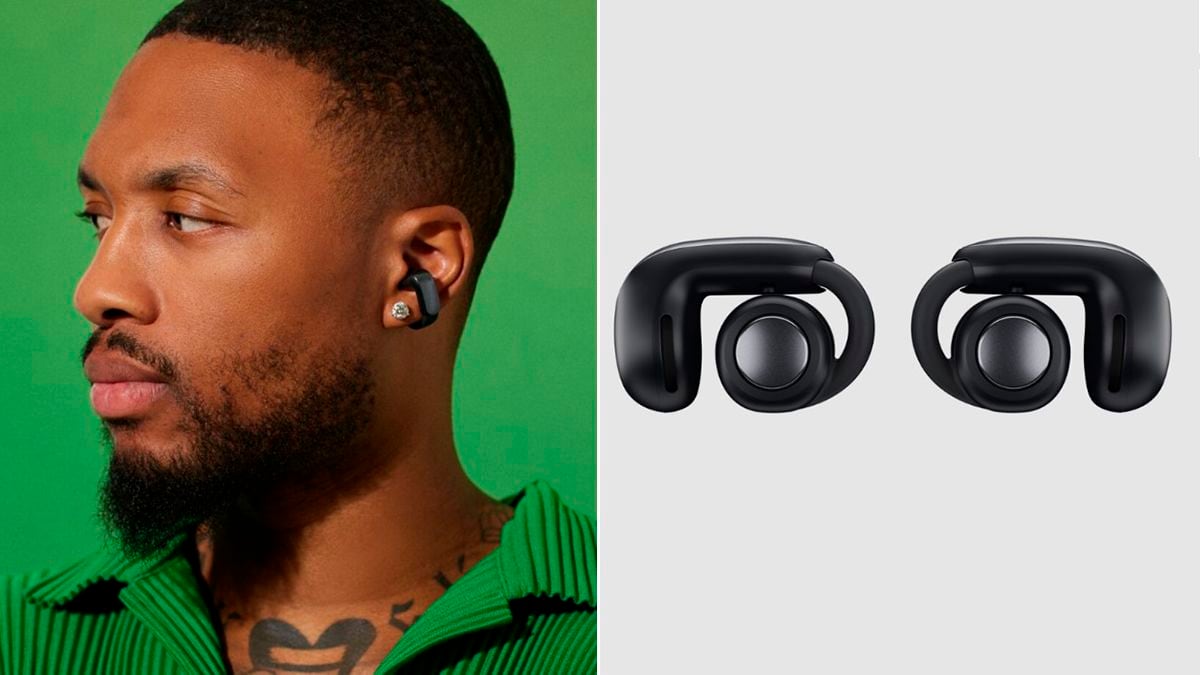Icon: enlarge
Mobile room air filter
Photo: Jomkwan / iStockphoto / Getty Images
SPIEGEL:
Mr. Kähler, you recently called the Federal Chancellery.
What did they want to know?
Christian Kähler:
That was a few weeks ago, I get loads of emails every day.
The Chancellery wanted to know whether mobile room air purifiers - for example in open-plan offices or in conferences - can filter coronaviruses out of the air.
And if so, how and what to look out for.
SPIEGEL:
And what did you say?
Kähler:
I answered what I also say to other ministries, authorities, schools and citizens: that mobile air purifiers are well suited to filter aerosol particles and thus viruses from the air.
The devices ensure that the virus load is kept at a very low level, so that one does not have to worry about an indirect infection.
However, the devices must meet certain criteria.
SPIEGEL:
Which would be?
Kähler:
There are three points: First, the device should be able to filter at least six times the volume of the room in one hour.
A calculation example: If I have a 20 square meter room at home, that's 50 cubic meters.
Six times that equals 300. So I would have to buy a device that can filter at least 300 cubic meters of air in an hour.
SPIEGEL:
And the second criterion?
Kähler:
The filter.
You can only get viruses out of the air with a so-called Hepa filter (High Efficiency Particulate Air / Arrestance) of class H 13 or H 14.
Because only these filters are able to reliably separate even the smallest particles in the sub-micrometer range, which arise, for example, when speaking.
SPIEGEL:
And the third point?
Kähler:
The devices have to be as quiet as possible.
Because you usually sit with this device for eight hours in the office or conference room.
If the sound annoys you after an hour, turn it off and then that's it for sure.
A rule of thumb: the larger the device, the larger the fan and the lower the speed and thus the noise.
A small device that achieves higher speeds with a smaller fan is significantly louder.
SPIEGEL:
But if you don't have an open-plan office, are these smaller devices also suitable?
Kähler:
Yes, if you want to provide additional security for a coffee party at home, smaller devices that then run for two or three hours are sufficient.
I have some of these consumer room air filters in my institute because we tested the most common ones.
There are some very good devices, but unfortunately also some very bad ones.
SPIEGEL:
How can you distinguish the good from the bad?
Kähler:
It's best to go to a specialist shop and tell a consultant exactly what you want: A room air filter that can filter at least six times the room volume, in our example 300 cubic meters of air per hour.
Then an H13 or H14 filter should be integrated, which has been tested according to the European ventilation standard EN 1822-1.
And then the device should not be louder than 52 decibels at maximum power.
There were a few in our tests that stayed below this limit.
Incidentally, professional devices are quieter than 52 decibels even with 1200 cubic meters of air per hour.
SPIEGEL:
How did you go about your test?
Kähler:
We first created aerosol particles in a room and distributed them evenly in the room.
Viruses are not needed for the experiment.
SPIEGEL:
So you used a kind of fog machine like you did in the disco?
Kähler:
Something like that, but we use high-quality generators with which you can also adjust the size of the particles.
After all, what matters most to us is the small particles in the submicrometer range.
That is what gets into the air when you breathe, speak, sing or cough.
Then we measured how many aerosol particles escape from the room air, for example when they come into contact with walls or through gaps in doors and windows.
That was our reference measurement.
And then we tested the various devices with the same experimental setup.
Then you could see how strong the decrease in the particles was over time.
We were able to derive three important quantities from the experiment.
First, the number of air changes, i.e. how often the room air volume is filtered per hour.
Second, the half-life, i.e. how long the device has to run to separate half of the particles from the room.
And third, the dwell time, so that you know how long the particles will stay in the room if they are released somewhere.
SPIEGEL:
Is it crucial where the device is placed?
Up, down, on the door, on the window?
Kähler:
No, as long as the device has good access to the air in the room - i.e. not covering it or placing it behind a piano or something - it doesn't really matter where it is.
Other studies have shown that too.
However, it is important: You should not operate the room air filter in automatic mode, because the devices then reduce the air exchange to a minimum.
Better to manually regulate the air flow to at least six times the room volume per hour, then you are on the safe side.
SPIEGEL:
Just ventilation isn't a good alternative?
Kähler:
If you ventilate the room for a long time in winter, you will have problems: First of all, within minutes it will be as cold inside as outside at sub-zero temperatures, you cannot freely regulate the temperature.
You will not hold out for long and ventilate less out of pragmatism.
Second, it does not work well physically: for a complete exchange of air, a large temperature difference or wind is required for ventilation.
Unless you live on the coast, it will be very difficult to get air changes six times an hour.
SPIEGEL:
But ventilation isn't harmful - the Federal Environment Agency expressly recommends it, even and especially in winter, to let carbon dioxide out and oxygen back in again?
Kähler:
No, ventilation is of course not harmful, but during the pandemic it is only an addition to the room air purifier.
In the meantime, even the Federal Environment Agency says that room air filters can be useful.
For example, we are currently advising a large number of schools, for whom we recommend a combination of room air filters to prevent indirect infection and transparent protective walls between workplaces to prevent direct infection with coronaviruses.
According to our research, you can get through the winter safely and safely with it.
(Read here what is known about air exchange in classrooms.)
SPIEGEL:
Ventilation for and against, room air filters yes or no - what makes your field so complicated?
Kähler:
Aerosols are not distributed in a laminar manner, like the blood in our body, for example, flows in one direction.
Aerosols in a room are distributed in a turbulent manner, there is no straight line connection from the source, i.e. someone who may be coughing, to the target, i.e. someone who may inhale viruses.
Rather, the particles are strongly mixed and deflected, the particle cloud hits objects or other particle clouds.
These are all important parameters, but very complicated to describe and predict.
You have to have researched for a few years to penetrate this.
SPIEGEL:
Suddenly, your area of expertise is more popular than ever.
Kähler:
Yes, otherwise we do research for the textbook and to gain knowledge.
And now we are suddenly doing socially very relevant research.
We already demonstrated in the spring how useful masks are to prevent the spread of infection.
In the summer we researched how and whether choirs and wind musicians can still rehearse and perform safely.
I have advised many choirs and orchestras around the world, for example the many music corps of the Bundeswehr, which also play on state visits to Bellevue Palace.
Now we take care of the indoor air in schools to survive the winter.
Let's see what's next.
Icon: The mirror















